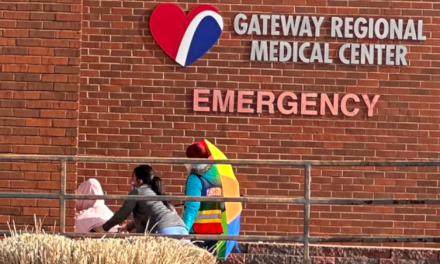Ohio Supreme Court Hears Arguments in Toledo Abortion Facility Transfer Agreement Case With No Mention of Mishandled Emergency

By Cheryl Sullenger
Columbus, OH — The Ohio Supreme Court heard oral arguments today in the case of a Toledo abortion facility that is attempting to stave off license revocation for failing to maintain a written transfer agreement with a local hospital.
Stephen Carney, the attorney representing the State of Ohio argued that the case was not about abortion since the regulation applies to over 200 ambulatory surgical centers throughout the state. He maintained that abortion facilities were not singled out.
“We shouldn’t distort the normal rule of law just for abortion clinics,” he argued.
In Ohio, ambulatory surgical facilities are required to have a written transfer agreement with a local hospital. The Ohio Department of Health notified Capital Care Network of its intent to revoke its ASC license because it first had not transfer agreement whatsoever. Later, Capital Care contracted with a hospital in Ann Arbor, Michigan, 52 miles away from the Toledo facility and indicated they would call for a helicopter to transport women.
However, the state argued that Capital Care Network admitted it never had any intention of calling for a helicopter, because it would take nearly an hour to get a helicopter ready and even then, there was no place to land at the abortion facility.
Carney was questioned repeatedly over the requirement that hospitals be local and exactly what the definition of “local” might be. While he noted that the regulation did not specifically mention the word “local,” it could only be implied in the context of the requirements of speed in a medical emergency. He used the example of an Ohio ambulatory surgical center contracting with a California hospital as being impractical due to distance and lengthy travel time.
He argued that there were three benefits to ambulatory surgical centers having written hospital transfer agreements. First, it ensured continuity of care for the patient and guaranteed admission to the hospital. Without a transfer agreement, a patient might simply be stabilized by emergency room doctors then released.
Operation Rescue notes that is exactly what happened to a Michigan abortion patient, Cree Erwin, who sought help at a Battle Creek hospital in June 2016, after she suffered a perforated uterus during an abortion at Planned Parenthood in Kalamazoo, Michigan, two days earlier. She was released by emergency room doctors after pain drugs made her feel better, when she should have been admitted. She died hours later from her abortion-related injuries, illustrating how the emergency room practice of releasing after stabilization can be dangerous for women suffering unknown abortion complications.
Other benefits to having a hospital transfer agreement noted by Carney are open communication with the hospital staff, and the guarantee that medical records will be transferred to the hospital with the patient.
However, during the over 45 minutes of arguments, the fact that a patient was transferred to Toledo Hospital on April 1, 2017, was never discussed. That patient was driven to the hospital emergency room by a clinic employee in her private vehicle after the abortionist, believed to have been Lucy Ann Nunnally, suspected a uterine and bowel perforation during the 11.5 weeks suction abortion. No medical records were sent with that patient.
The Ohio Department of Health has notified Capital Care Network of its intent to fine the abortion facility $40,000 for mishandling the transfer in violation of the facility’s own written emergency protocols, which require them to call 911 for an ambulance to transfer patients. The fine was a result of a complaint filed by a local pro-life activist at the recommendation of Operation Rescue.
Jennifer Branch, the attorney arguing for Capital Care Network maintained that the abortion facility’s license was unlawfully revoked even though the abortion facility never has had to transfer a patient, again, failing to inform the court of the April 1 transfer.
Branch argued that there was no benefit to having a hospital transfer agreement, and that such agreements posed an undue burden on women because abortion facilities had a difficult time contracting with hospitals. No Toledo area hospital would agree to enter into a transfer agreement with Capital Care Network.
However, Carney noted one ironic argument made by the abortion facility. While the abortion business argues that Ann Arbor, Michigan, is not too far to travel for a woman suffering a medical emergency, it is too far to travel for a woman seeking to make an abortion appointment for the following week.
“Dumping a patient with life-threatening injuries on an unprepared hospital emergency room staff without so much as a medical record to help them treat the patient is irresponsible and undeniably dangerous, but that is exactly what Capital Care Network has done,” said Operation Rescue President Troy Newman. “The Court should rule that the state acted properly to enforce Ohio law, and to protect women. The Court would serve the best interests of the public and the rule of law by upholding the Department of Health’s license revocation order.”
The Ohio Supreme Court took the case under advisement.





